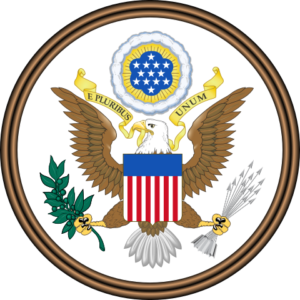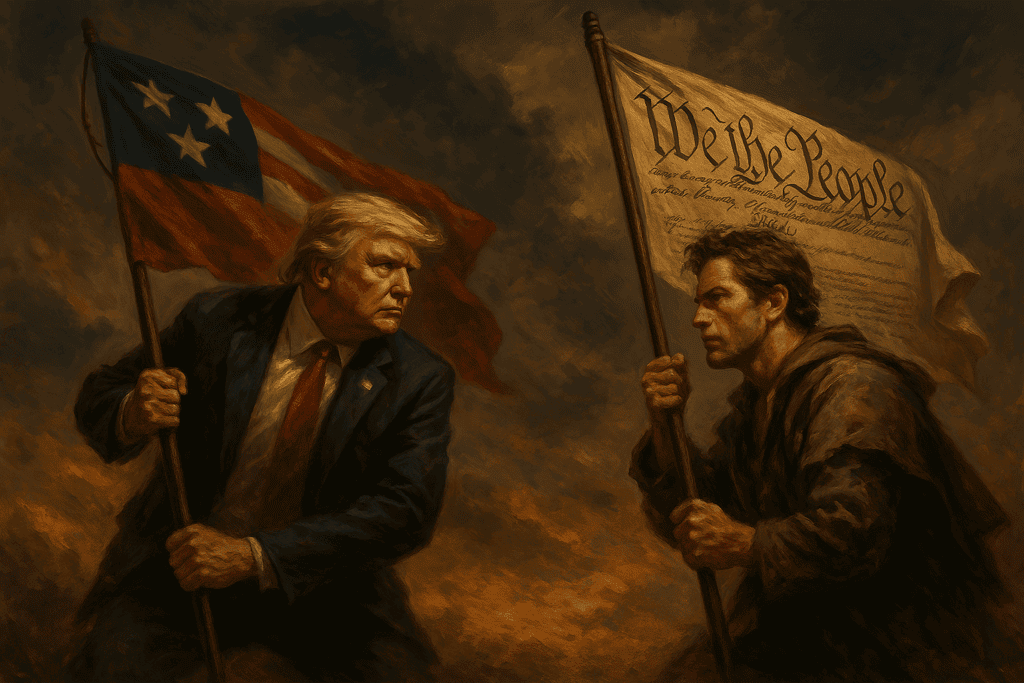War Powers Act
Updated Jun 25, 2025
President Trump’s recent decision to bomb Iran’s nuclear facilities—without congressional authorization or approval—has once again stirred the unresolved tension at the heart of the War Powers Act.
When I first wrote this post, I hoped the pattern might shift. That Congress would reassert its role. That a line might be drawn. But time and again, presidents act alone, and each episode fades into precedent.
The Constitution could not be clearer. Article I, Section 8, Clause 11: “The Congress shall have Power … To declare War.” Yet the War Powers Act is treated more as suggestion than law. Its violations carry no penalties. The Supreme Court won’t intervene. And Congress too often accepts marginalization with a shrug.
The framers feared the dangers of a single voice leading a nation into war. That fear wasn’t abstract—it was foundational. And yet, over time, we’ve muted it. Not out of reasoned debate or principled compromise, but by letting habit harden into practice.
We didn’t decide this course. We drifted into it.
That is the shape inertia takes.
Originally Posted 2012
In 1973, Congress overrode President Nixon’s veto and enacted the War Powers Act (also known as the War Powers Resolution). This act was intended to codify the President’s responsibility to consult, to report, and to be limited by Congress’s power to declare war. However, the result has been a law that is ignored by presidents, unenforced by Congress, and left fallow by the Supreme Court.

There are three main provisions in the War Powers Act (WPA).
- Consultation The President in every possible instance shall consult with Congress before introducing United States Armed Forces into hostilities or into situation where imminent involvement in hostilities is clearly indicated by the circumstances. (WPA Sec. 3)
- Reporting On occasions when events require armed response before consultation has taken place, “the President shall submit within 48 hours to the Speaker of the House and the President pro tempore of the Senate a report” on the action and continue to as long as the troops are in harm’s way. (WPA Sec 4)
- Congressional Action Upon receiving a report of the armed activity, if 60 days elapses without a Congressional declaration of war, the President will end the armed activity. An additional 30 days grace may be allowed if the President makes the case that the timing is too abrupt for safe extraction of the troops. (WPA Sec 5)
Response to Undeclared Vietnam War
Why did Congress in 1973 think that it was necessary to pass this bill? This was the tail end of the undeclared Vietnam War involving more than 500,000 troops. In fact, since December 8, 1941 Congress had declared no wars but the US military had been deployed in Korea as well as many smaller activities around the world. With Nixon weakened by the Watergate scandal, Congress saw the opportunity to reassert what it saw as its Constitutional power to be consulted with on foreign military operations and to be the source of declarations of war. Nonetheless still allowing the President to react to quick moving foreign events with subsequent notification (the 48 hour report requirement).
Military Operations Since War Powers Act
After Congress passed this resolution, President Ford reacted to the Mayaguez incident and reported to Congress his action. He did not consult and the freeing of the captured ship (with the loss of 41 servicemen to gain the freedom of 39 crewmen) was over before any WPA provisions were violated (ROADWAR 105, 199). President Carter in the Iranian Hostage Crisis ordered an armed rescue without consulting Congress. It was an abject failure and possibly would have more of a chance of success with input from senior congressional members who had military assessments which Carter didn’t bring to the decision table (ROADWAR 106).
That set the pattern. Basically the presidents gave as little lip service as possible to the letter of the War Powers Act, presenting Congress with fait accompli. A favorite presidential dodge was to not reference the War Powers Act when reporting to congress on military operations (WAR 198-199, ROADWAR 104-111 en passim). In that manner, the 60 day countdown of Sec. 4 of the Act was not started.
And when Congress did authorize the operations, the presidents made sure to assert that their right to perform in a unilateral manner came from the Constitution, not the War Powers Act.
Bipartisan Issue
The controversies of the enforcement and avoidance of the War Powers Act have bedeviled both Democratic and Republican presidents. Clinton and Obama provide Democratic examples.
President Clinton used a NATO resolution, avoiding the Congressional action, as authorization for deploying troops to Haiti to reinstall President Aristide. By a unanimous vote the Senate rebuked Clinton for exceeding both the Constitution and the War Powers Act, to which he replied, “like my predecessors in both parties, I have not agreed that I was constitutionally mandated” to secure Congressional approval (WAR 211).
President Obama presents a nice, stark, and recent case of how one’s perspective changes from a Congress member to the President. While running for President, Obama criticized George W. Bush’s War in Iraq as an example of an extra-constitutional assertion of the unitary power of the president to declare and make war. Yet, once elected as president, Obama was faced with an opportunity in depose of Libya dictator Muammar el-Qaddfi, Obama chose to ignore the War Powers Act by carefully redefining words to skirt the 60 day limit on overseas military activities without the benefit of a congressional declaration of war (LIBYA).
Legal Controversy
The War Powers Act is a controversial law. Presidents ignore it, claiming that the constitution gives them, as Commander-in-Chief, the right to make war. Proponents of the bill feel that it readjusts to the balance of power that the writers of the Constitution intended. Madison saw the separation of war making powers between the legislative and the executive branches as a necessary step to avoid the British royal prerogatives (WAR 34) which the United States had so recently fought against. Another criticism of the War Powers Act is that some believe it grants to the President powers beyond that of the Constitution, specifically the 60 day blanket authorization for military operations (ROADWAR 103). A significant defect in the bill is the lack of enforcement penalties. If the President avoids the WPA provisions, there are no mandatory reactions curtailing the President’s actions (WAR 196-199).
The US Constitution directly speaks to the President’s role in war in Section 2.
The President shall be Commander in Chief of the Army and Navy of the United States, and of the Militia of the several States, when called into the actual Service of the United States.
Presidents differ with Congress on what the war initiating rights and duties of the commander-and-chief entail or allow. In fact, Senator Barry Goldwater during the Vietnam War made the argument that the president had the power to make war and that only subsequently could the Congress declare the war, but investigation into the meaning of the words ‘make’ and ‘declare’ in the late 1700s militates against Goldwater’s interpretation (WAR 21-23).
The Constitution has a much more extensive listing of Congressional war powers of which the two below are primary—declare war and fund military operations (Constitution Article 1 Section 8).
To declare War, grant Letters of Marque and Reprisal, and make Rules concerning Captures on Land and Water;
To raise and support Armies, but no Appropriation of Money to that Use shall be for a longer Term than two Years
In its 1975 Goldwater v. Carter ruling, the Supreme Court noted that Carter’s abrogation of the Mutual Defense Treaty with Taiwan was not a reviewable case until both branches had asserted their Constitutional authority. This is another example of constitutional questions in which the Supreme Court asserts the legislative and executive branches must work out their differences politically (ROADWAR 106-107). This philosophy of ‘political questions’ forbidding judicial review of the constitutional concepts is at odds with Judge Marshall’s declaration in Marbury v. Madison that judicial review was the Court’s essential role (WE 575).
Political Reality
Since the executive branch of government commands 97% of all government employees and the legislative but 1% (BLS), a political struggle between the two branches is inherently unequal
The Court should in my opinion, step in and rule on the line between the two branches.
But lacking that and after reviewing the War Powers Act, the relevant parts of the Constitution and much commentary, it appears that a pragmatic solution to sharing the war making power must be found which honors the Constitution while allowing the two branches of government the flexibility to respond to an always changing environment.
Middle Ground in the War Powers Zone
James Baker and Warren Christopher have proposed a War Powers Consultation Act of 2009 from the bipartisan National War Powers Commission. It skirts the constitutional issues while mandating consultation between Congress and the President on “significant armed conflict” which is defined clearly to allow the President to retain flexibility on small, urgent actions. It also lays an obligation on Congress to vote up or down on those “significant armed conflicts” (BAKER). It would not settle all the war related issues between the two branches but it would provide a firm foundation for meaningful consultation before the dramatic step of introducing American forces into large overseas operations.
With its passage, the United States could again be ruled by law rather than by an unadjudicated Constitutional interpretation.
Image of Great Seal of United States. By U.S. Government – Extracted from PDF version of Our Flag, available here (direct PDF URL here.), Public Domain, wikimedia commons
Cited Works
- ROADWAR. The Road to War. Congress’ Historical Abdication of Responsibility, Robert Kennedy, 2010, Praeger, ISBN 978-0-313-37235-3
- WAR. War Powers. How the Imperial Presidency Hijacked the Constitution. Peters Irons. 2005. Henry Holt and Company. ISBN-10 0-8050-7593-3
- WPA. War Powers Act 1973. Text from Yale Law. http://avalon.law.WPA.edu/20th_century/warpower.asp
- BAKER. NY Times. July 8, 2008. War Powers Consultation Act of 2009 http://www.nytimes.com/2008/07/08/opinion/08baker.html?_r=2, publ. July 8, 2008 in NY Times
- LIBYA. NY Times. June 6, 2011. Obama and Libya.
http://www.nytimes.com/2011/06/16/us/politics/16powers.html?pagewanted=allhttp://www.nytimes.com/2011/06/16/us/politics/16powers.html?pagewanted=all - WE. We The People. An Introduction to American Politics, Eighth Edition. Ginsberg, Lowi, Wier. 2011. W. W. Norton & Company. ISBN 978-0-393-93523-3



1 thought on “War Powers Act”